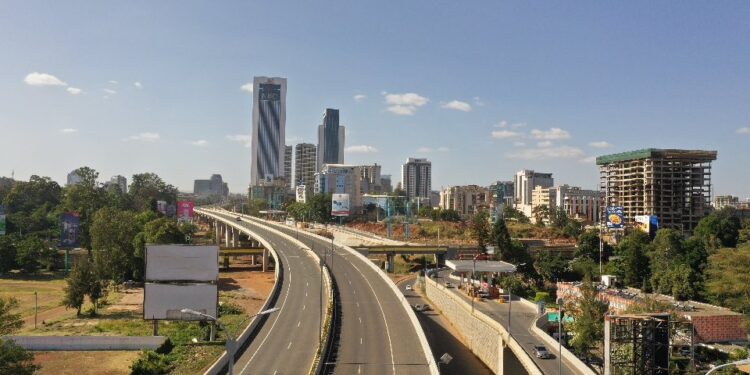Infrastructure development has a strong impact on property value growth in Kenya’s Real Estate market. Better infrastructure, like roads, highways, rail systems, and utilities, makes areas more connected, easier to reach, and more appealing for Real Estate investments. In Kenya where city and suburban areas are growing fast, infrastructure projects are crucial to back this growth increasing property demand and, as a result pushing up values and eventually boosting economic growth
The Nairobi Expressway stands out as a key infrastructure project in Kenya finished in 2022. It links Jomo Kenyatta International Airport (JKIA) to Nairobi’s Westlands area. This road has cut down travel time to the Central Business District (CBD) and sparked growth in new areas along its path. Places like Syokimau, Athi River, and Kitengela have seen more people wanting property there because they can now reach Nairobi’s CBD with ease. This better access has made these spots more appealing to home buyers and businesses pushing up property values a lot.
Road networks play a key role in driving up Real Estate prices in Kenya. The expansion of highways like the one connecting Nairobi to Thika Ruiru, and Juja has turned these towns into thriving urban hubs. This Thika Superhighway has made it quicker to get to Nairobi causing a big jump in demand for property in these towns. As a result, they’ve become hot spots for middle-class families looking for homes they can afford outside the city. The Superhighway has also given a boost to business growth leading to new shopping malls, schools, and health centers popping up. All of these additions help to push property values even higher.
Rail infrastructure is also playing a crucial role. The Standard Gauge Railway (SGR), which links Nairobi to Mombasa and extends to Naivasha, has a major impact on the Real Estate scene. The railway cuts down on transportation costs making nearby areas appealing for industries and logistics centers. This growth in industry has led to more demand for homes as workers move closer to their jobs. Syokimau, which sits along the SGR route, shows how residential properties have gone up in value. It’s popular as a commuter town offering affordable housing within reach of Nairobi.
Other infrastructural investments, such as the expansion of water and electricity in suburban areas, complement the growth of Real Estate. In that respect, properties extended to have such utilities appreciate in value and, therefore, are more acceptable to consumers. Improved utility networks have been realized in areas like Kiambu and Machakos and are recorded to increase in land and property values, making them liveable.
To have a robust, thriving and self-sustaining economy, Real Estate needs to be supported with essential infrastructure and utilities. These infrastructural projects create a positive feedback loop for Real Estate in Kenya. Improved infrastructure leads to increased accessibility, which attracts investors and increases demand for properties, further improving values. The investment in infrastructure is, therefore, paramount for Kenya’s Real Estate market to ensure that there is continued growth in property values to satisfy the increasing demand for affordable housing as part of urban expansion and economic development.


















